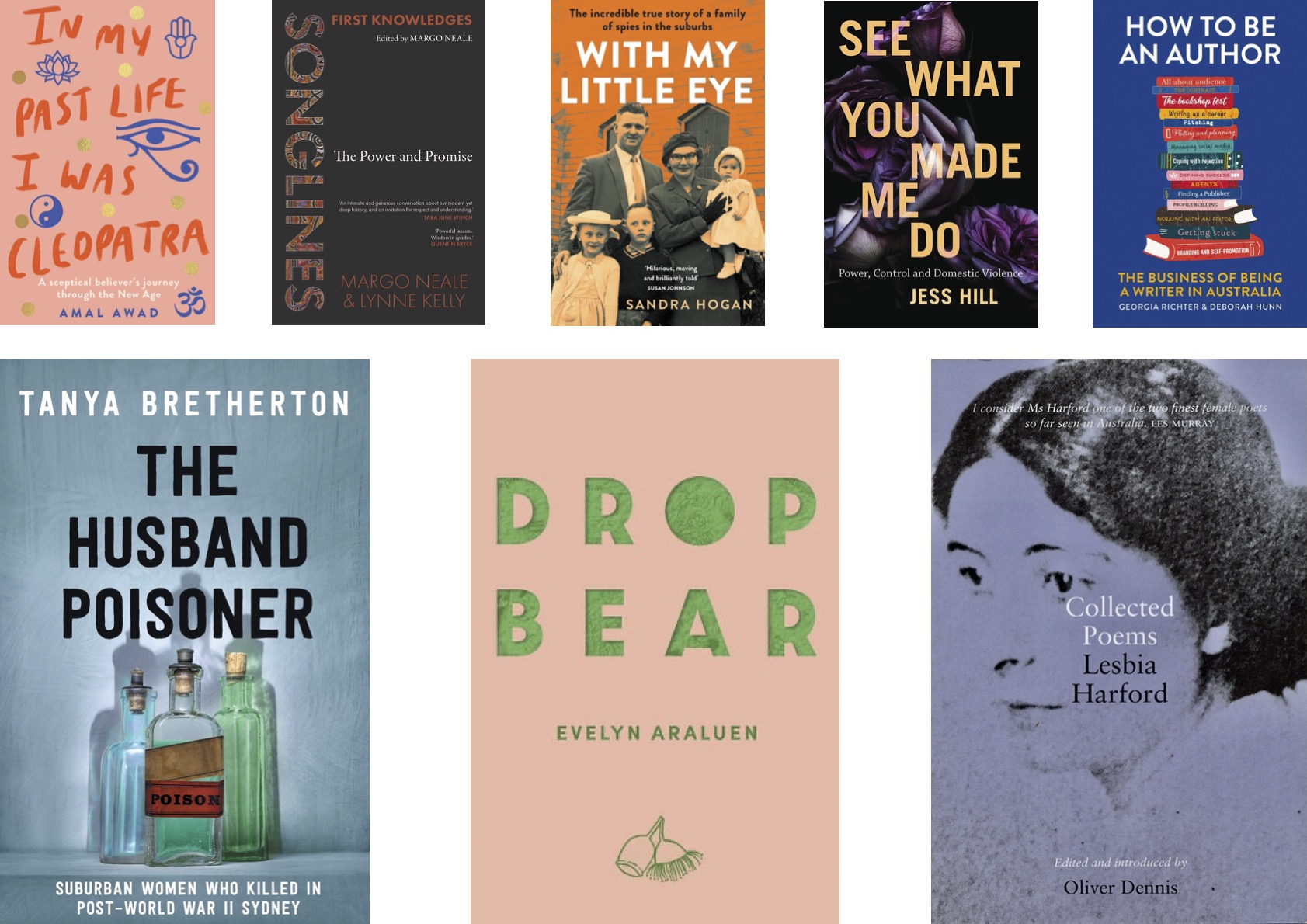
Hello Readers!
For March there was:
Reviews: 16
Reviewers: 13
Books Reviewed: 15 (4 poetry)
Excitingly, 8 of the books reviewed this month were completely new to the AWW database. So a big thank you!
The most prolific reviewer was: Tegan Edwards (me 😱) with 3 books reviewed.
The most reviewed title this month was: The Husband Poisoner (2021) by Tanya Bretherton which was reviewed twice.
As always, click on the coloured quote from a review to be taken directly to it. And a quick reminder: this round up includes poetry submissions despite their not being non-fiction. It just came out in the wash that way! Perhaps one day we’ll have enough poetry reviews to give them their own round up (it’s not wishful thinking, I swear).
– – –
Before proceeding please be aware that some of the books discussed below mention sexual abuse, domestic violence, racism/colonialism, and war. There is no description or imagery relating to these topics.
Aboriginal History & Poetry
A first-time addition is the very new poetry release Dropbear (March 2021) by Evelyn Araluen which mixes verse and essay to interrogate settler history and consider the redemptive hope of a decolonial future. Named after the fictional deadly koala-like bear, Lauren Pratt of Underground Writers says that:
In a similar strain, is my review of Ambelin Kwaymullina’s poetry manifesto Living on Stolen Land (2020) which I read thanks to a previous review here at AWW which recommended it. This poetic depiction of the past’s relationship with Indigenous Countries and what wisdom they can offer for the future somehow managed to exceed my expectations. I wrote: “everyone who purports to fight for social justice or feminism should read this and use it as a guide…I want to find a way to deposit it into my heart and psyche so I can absorb it, remember it, and enact what it asks of me as a white person on stolen Indigenous land but also as someone who is seeking out ways of healing and connecting within the bounds of justice and accountability.”
Lastly is another first-time addition but in this case a non-fiction title. Songlines: The Power and Promise (2020) is a historical discussion of Indigenous culture by Margo Neale and Lynne Kelly that was reviewed by Maureen Helen. Countering white ways of knowing, songlines refer to the Aboriginal means of storing and earning knowledges, both ancient and modern. They are stories embodied in the land, sea and skies to be remembered and passed on through song, dance, art, ceremony and, most importantly, through attachment to Country. Maureen Helen’s review is informative and in-depth (read it in full here), and concludes by saying that Songlines “provides a wealth of knowledge. Both informative and entertaining, it contains useful footnotes and explanations. Several illustrations make salient points. There is an index and a list of further reading for those who wish to pursue particular ideas.”
Songlines: The Power and Promise (2020) is a historical discussion of Indigenous culture by Margo Neale and Lynne Kelly that was reviewed by Maureen Helen. Countering white ways of knowing, songlines refer to the Aboriginal means of storing and earning knowledges, both ancient and modern. They are stories embodied in the land, sea and skies to be remembered and passed on through song, dance, art, ceremony and, most importantly, through attachment to Country. Maureen Helen’s review is informative and in-depth (read it in full here), and concludes by saying that Songlines “provides a wealth of knowledge. Both informative and entertaining, it contains useful footnotes and explanations. Several illustrations make salient points. There is an index and a list of further reading for those who wish to pursue particular ideas.”
Special Mention
This month’s special mention goes to Jonathan Shaw’s review of See What You Made Me Do: Power, Control and Domestic Violence (2019). It is the first review this year of this book and (as it begins by saying) it is timely considering the current sexual abuse allegations against men of the Australian Parliament. Although I’m sure many of our more seasoned reader-reviewers are aware of this title,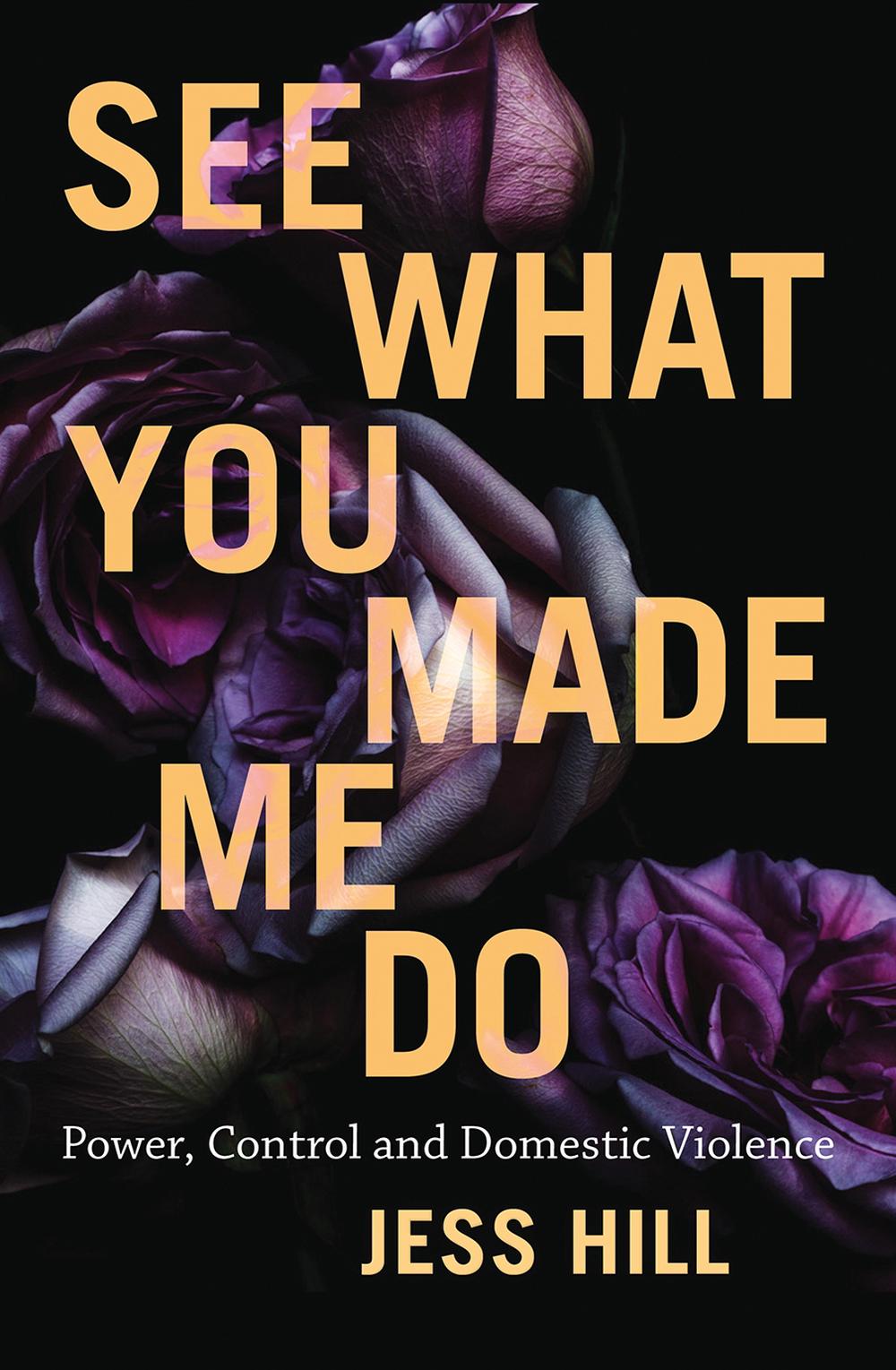 I was not and am glad to be checked on this count. Especially because, as Jonathan Shaw so perceptively writes:
I was not and am glad to be checked on this count. Especially because, as Jonathan Shaw so perceptively writes:
Combining research and survivor stories it is a book that grapples with victim-blaming and the crisis of family violence. If people are discounting this book because we already know the logic of domestic violence, I wonder if perhaps this makes it all the more necessary for us to read, especially considering the glacial pace of change and the amount of continued disclosures pointing to how deeply embedded (and accepted) toxic masculinity is. I recommend reading Jonathan Shaw’s review in full. As all three of the reviews of this title in the database argue, this is a hard read but this makes it imperative reading. It is, they conclude, a stand-out on the topic.
Poetry of the Past
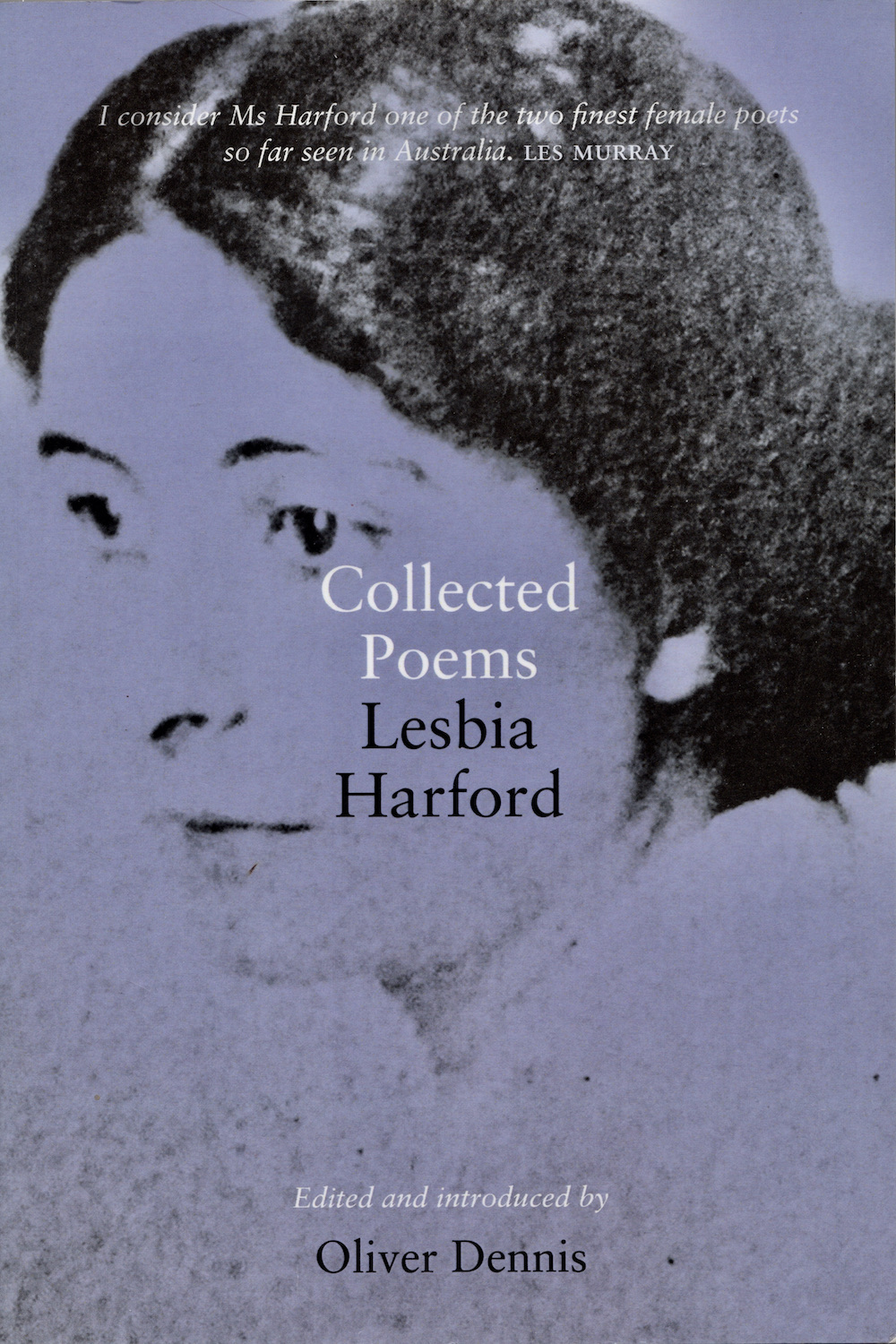 This year I made it a goal to read and review more poetry by Australian women. I’m especially interested in earlier works. As such, this month I read Lesbia Harford’s poetry which was written between 1908-1927. She hadn’t previously been added to the database at all. As I wrote in my review, I am in awe of the collection. Harford “was a queer feminist, social activist, and unionist” and “these values pulse through her verse”. The “poems are literary, philosophical, and use evocative images of modernity as well as nature. Yet they are also often relevant and universal, a testament to the quality of these lyrical pieces.” That in the full review I reference the poems in relation to both Emily Dickinson and Virginia Woolf indicates just how much of an impression these pieces had on me. Harford writes not only about war, industrialism, and (bisexual) love, but about female forebears and menstrual pain, all in a strikingly Australian way (there’s eucalyptus flowers, Mt. Dandenong, and trams just to name a few).
This year I made it a goal to read and review more poetry by Australian women. I’m especially interested in earlier works. As such, this month I read Lesbia Harford’s poetry which was written between 1908-1927. She hadn’t previously been added to the database at all. As I wrote in my review, I am in awe of the collection. Harford “was a queer feminist, social activist, and unionist” and “these values pulse through her verse”. The “poems are literary, philosophical, and use evocative images of modernity as well as nature. Yet they are also often relevant and universal, a testament to the quality of these lyrical pieces.” That in the full review I reference the poems in relation to both Emily Dickinson and Virginia Woolf indicates just how much of an impression these pieces had on me. Harford writes not only about war, industrialism, and (bisexual) love, but about female forebears and menstrual pain, all in a strikingly Australian way (there’s eucalyptus flowers, Mt. Dandenong, and trams just to name a few).
 The other poetry collection, Poetical Works by Lilian Morgan, is more of a mystery and perhaps a little cheeky to be added to the database as I can find almost no information on the author. Though educated guesses certainly suggest that she was an Australian woman who probably had this little volume published sometime in the 1940s (there’s more explanation of this in the full review here). If you have any information, I would love to know. Although I was initially hesitant due to its apparent religiousness, the collection was “a heart-rending struggle for faith from within the clutches of despair and depression”. I am glad I stumbled upon it and will treasure it among my many book oddities. The speaker of the poems plaintively evokes the “pain and sadness they suffer, yet this allows the reader to join—rather than dismiss—this feeling. And I think there’s something beautiful in that.”
The other poetry collection, Poetical Works by Lilian Morgan, is more of a mystery and perhaps a little cheeky to be added to the database as I can find almost no information on the author. Though educated guesses certainly suggest that she was an Australian woman who probably had this little volume published sometime in the 1940s (there’s more explanation of this in the full review here). If you have any information, I would love to know. Although I was initially hesitant due to its apparent religiousness, the collection was “a heart-rending struggle for faith from within the clutches of despair and depression”. I am glad I stumbled upon it and will treasure it among my many book oddities. The speaker of the poems plaintively evokes the “pain and sadness they suffer, yet this allows the reader to join—rather than dismiss—this feeling. And I think there’s something beautiful in that.”
Special Interest & Miscellanea
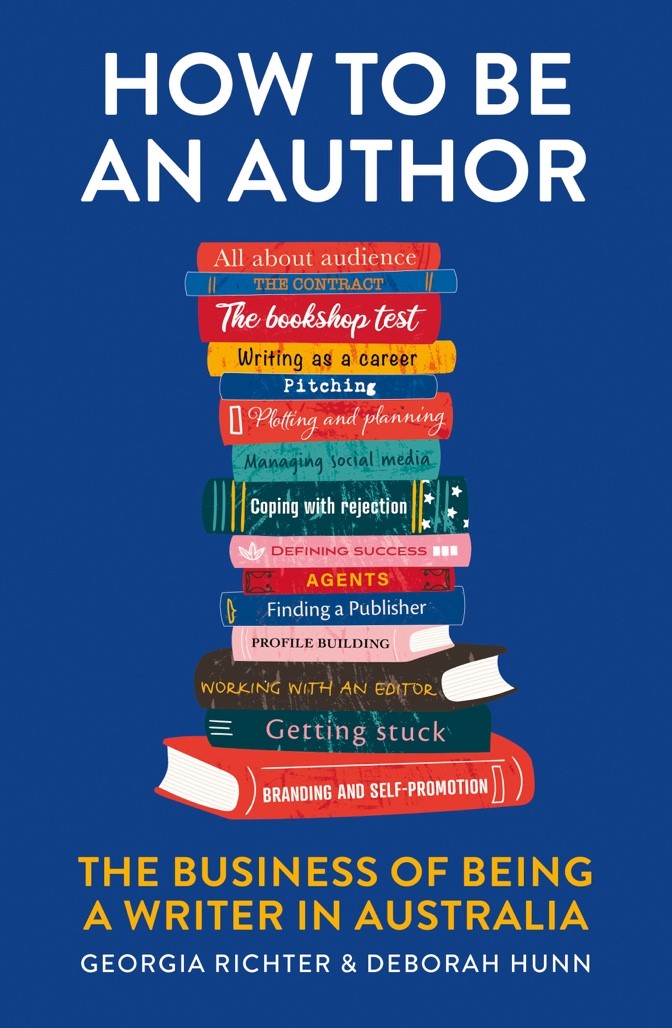 All three of the following books are new releases and first-time reviews! They cover a very diverse range of topics. First is a book about creative writing called How to be an Author (2021) by Georgia Richter and Deborah Hunn which was reviewed by Kate Lomas Glendenning at Underground Writers. Instructional and insightful, this book “delves into the nitty-gritty of what it means and takes to become a published author in Australia”, says Kate, and covers “writing, authorship, publication, marketing, [and every] other aspect of book publishing”.
All three of the following books are new releases and first-time reviews! They cover a very diverse range of topics. First is a book about creative writing called How to be an Author (2021) by Georgia Richter and Deborah Hunn which was reviewed by Kate Lomas Glendenning at Underground Writers. Instructional and insightful, this book “delves into the nitty-gritty of what it means and takes to become a published author in Australia”, says Kate, and covers “writing, authorship, publication, marketing, [and every] other aspect of book publishing”.
Turning to a genre-bending meld of memoir and cultural commentary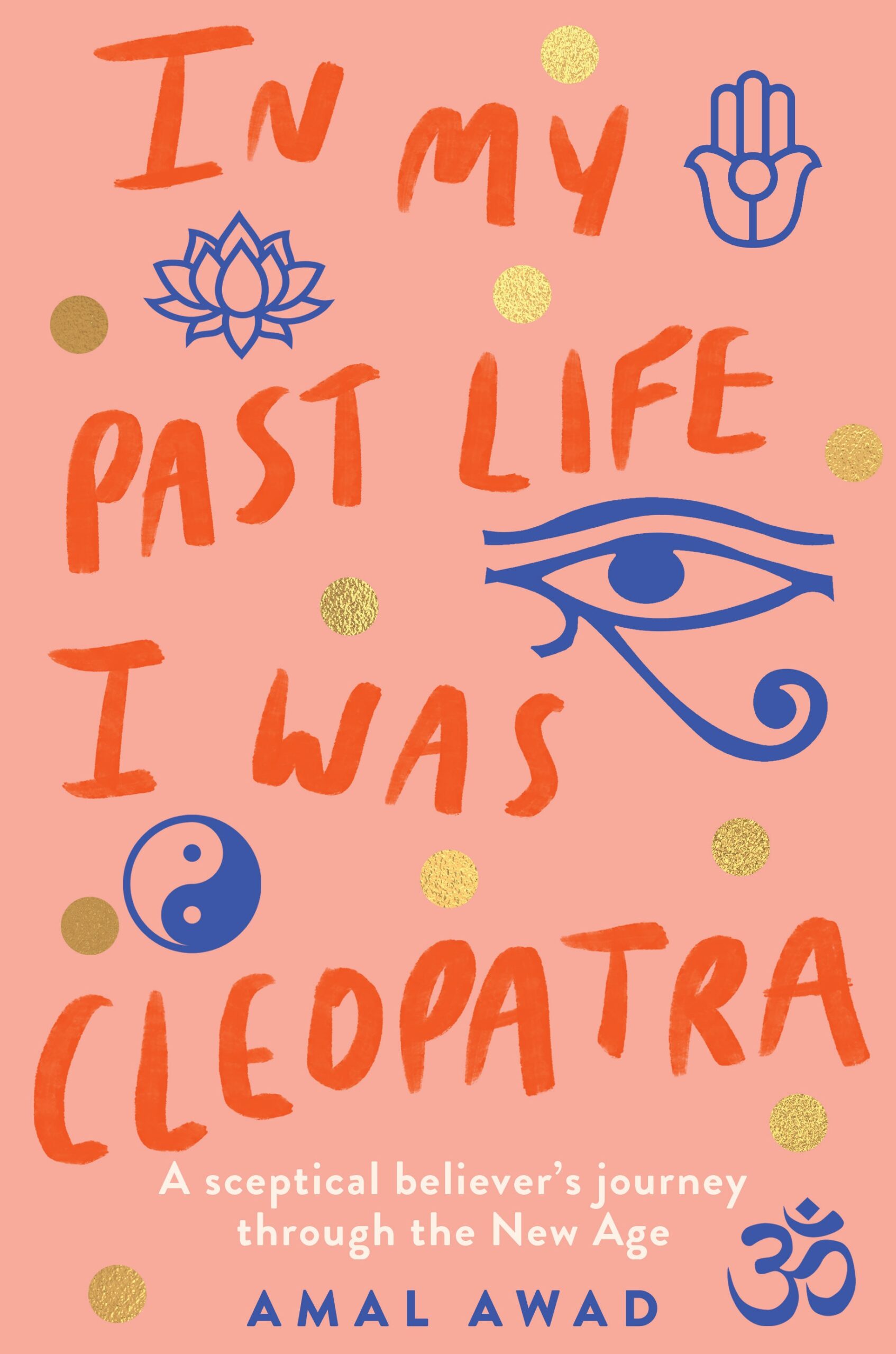 is Nalini Haynes’ (Dark Matter Zine) review of In My Past Life I Was Cleopatra (2021) by Amal Awad. Questioning all things spiritual, this books is subtitled “a sceptical believer’s journey through the New Age”. Exploring a vast array of spiritual, superstitious, and healing modes, Nalini is conflicted but surprised by the book which “is a shopping list of books and New Age modalities with a quick overview of Awad’s feelings on those topics” but in a way that is “at turns, funny, charming, engaging.” Awal Awad shares her personal journey to peace and empowerment via a wide array of psychics, healers and witches, considering the smorgasbord of spiritual thinking on offer, including the ways this is marketed to us in a capitalist world.
is Nalini Haynes’ (Dark Matter Zine) review of In My Past Life I Was Cleopatra (2021) by Amal Awad. Questioning all things spiritual, this books is subtitled “a sceptical believer’s journey through the New Age”. Exploring a vast array of spiritual, superstitious, and healing modes, Nalini is conflicted but surprised by the book which “is a shopping list of books and New Age modalities with a quick overview of Awad’s feelings on those topics” but in a way that is “at turns, funny, charming, engaging.” Awal Awad shares her personal journey to peace and empowerment via a wide array of psychics, healers and witches, considering the smorgasbord of spiritual thinking on offer, including the ways this is marketed to us in a capitalist world.
And finally, special thanks to Katie Elder for her submissions via Instagram including a review of The Divine Feline: A Chic Cat Lady’s Guide to Woman’s Best Friend (2021) by Belinda Alexandra. This fun filled review is loaded with puns and written by Katie’s very own cats. I love seeing pictures that capture books out in the world as opposed to detached covers, and the inclusion of animals is bonus points in my eyes! (Click the arrow below to see said cats.)
View this post on Instagram
Katie also submitted a similarly fun review of Kitty Flanagan’s 488 Rules: The Thankless Art of Being Correct (2019) which can be viewed here.
True Crime & Social History
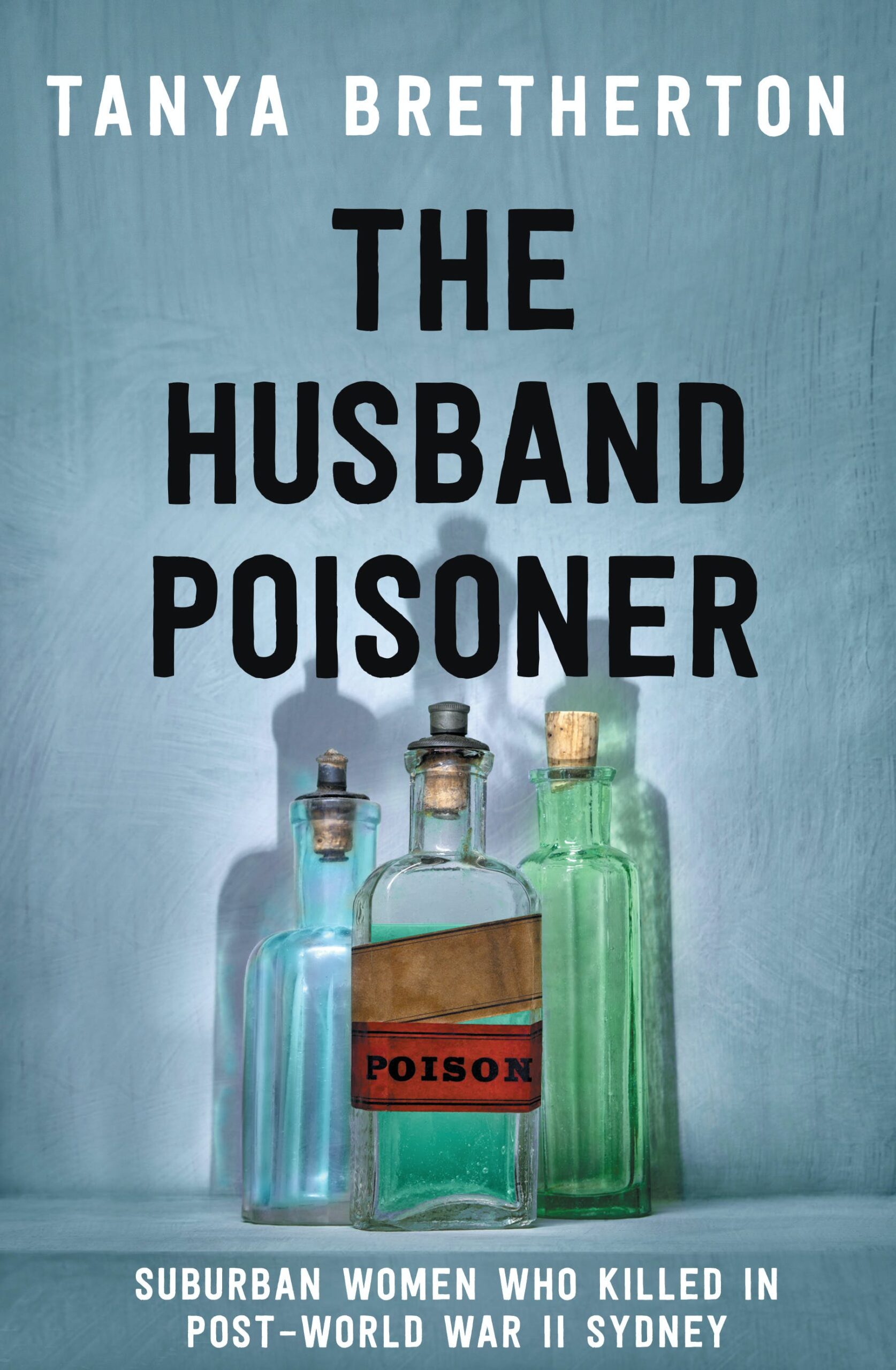 Lastly I’d like to recognise the very steady contribution of reviews of true crime and social history. This includes a new book by Tanya Bretherton entitled The Husband Poisoner (2021) which is our most-reviewed book for this month. It is a collection of real-life stories where women use rat poison to rid themselves of husbands and other inconvenient family members. It delves into how, after World War II, Sydney experienced a crime wave that struck at the very heart of domestic life as women looked for deadly solutions to what they saw as impossible situations. Shelleyrae at Book’d Out says: “Well researched and written, The Husband Poisoner is a fascinating and macabrely entertaining read, while Kim Forrester at Reading Matters applauds Bretherton’s “true crime tales with sociological insights [that] show how poisoning was “fashionable” in the 1950s because it was undetectable.”
Lastly I’d like to recognise the very steady contribution of reviews of true crime and social history. This includes a new book by Tanya Bretherton entitled The Husband Poisoner (2021) which is our most-reviewed book for this month. It is a collection of real-life stories where women use rat poison to rid themselves of husbands and other inconvenient family members. It delves into how, after World War II, Sydney experienced a crime wave that struck at the very heart of domestic life as women looked for deadly solutions to what they saw as impossible situations. Shelleyrae at Book’d Out says: “Well researched and written, The Husband Poisoner is a fascinating and macabrely entertaining read, while Kim Forrester at Reading Matters applauds Bretherton’s “true crime tales with sociological insights [that] show how poisoning was “fashionable” in the 1950s because it was undetectable.”
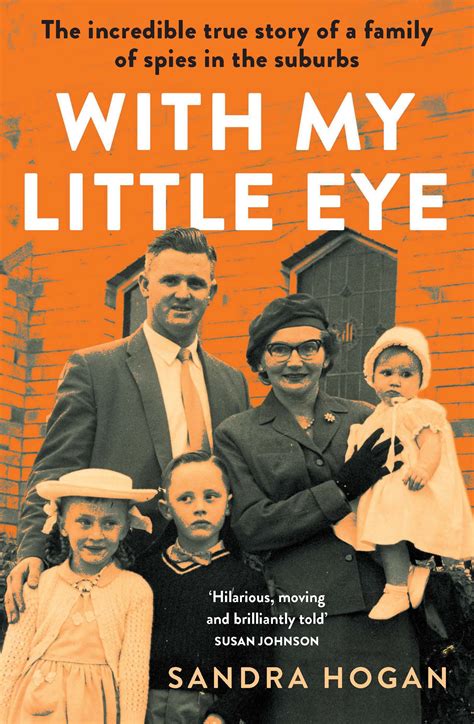 Also newly released and reviewed this month was With My Little Eye (2021) by Sandra Hogan, a true story of three kids who were recruited into the ASIO by their parents in the 1950s. The children became unwitting foot soldiers in Australia’s battle against Soviet infiltration. Grace Wholley of Underground Writers says that “What moved me the most was the novel’s explanation of the lasting impact of secrets” and highly recommends a book that “is critical but hilarious, apparently simple but deeply complicated” in its exploration of a family of spies living in the Australian suburbs during the Cold War era.
Also newly released and reviewed this month was With My Little Eye (2021) by Sandra Hogan, a true story of three kids who were recruited into the ASIO by their parents in the 1950s. The children became unwitting foot soldiers in Australia’s battle against Soviet infiltration. Grace Wholley of Underground Writers says that “What moved me the most was the novel’s explanation of the lasting impact of secrets” and highly recommends a book that “is critical but hilarious, apparently simple but deeply complicated” in its exploration of a family of spies living in the Australian suburbs during the Cold War era.
As in previous months, both The Edward Street Baby Farm (2020) and The Freedom Circus (2020) were reviewed as well. Both titles continue to be popular with our readers and were reviewed this month by Shelley Timms at Underground Writers (review here) and Amanda Barrett at Mrs B’s Book Reviews (review here).
Thanks to all the Reviewers
Here is a list of the reviewers mentioned this month and where you can find their work. Visit them, if and when you can. Say that I sent you!
-
- Tegan Edwards — here at Goodreads
- Lauren Pratt — at Underground Writers
- Maureen Helen — at maureenhelen.com
- Jonathan Shaw — at shawjonathan.com
- Kate Lomas Glendenning — at Underground Writers
- Nalini Haynes — at Dark Matter Zine
- Katie Elder — here on Instagram
- Shellyrae — at Book’d Out
- Kim Forrester — at Reading Matters
- Grace Wholley — at Underground Writers
- Shelley Timms — at Underground Writers
- Amanda Barrett — at Mrs B’s Book Reviews
Until Next Month!
Happy Reading 🤓📚
And remember, you can join the Australian Women Writers Challenge at any time. You don’t need a website or even a Goodreads account. You can post your review on Facebook, Instagram or any other online medium – Sign Up for the Challenge or Add Your Review now.
By Tegan Edwards
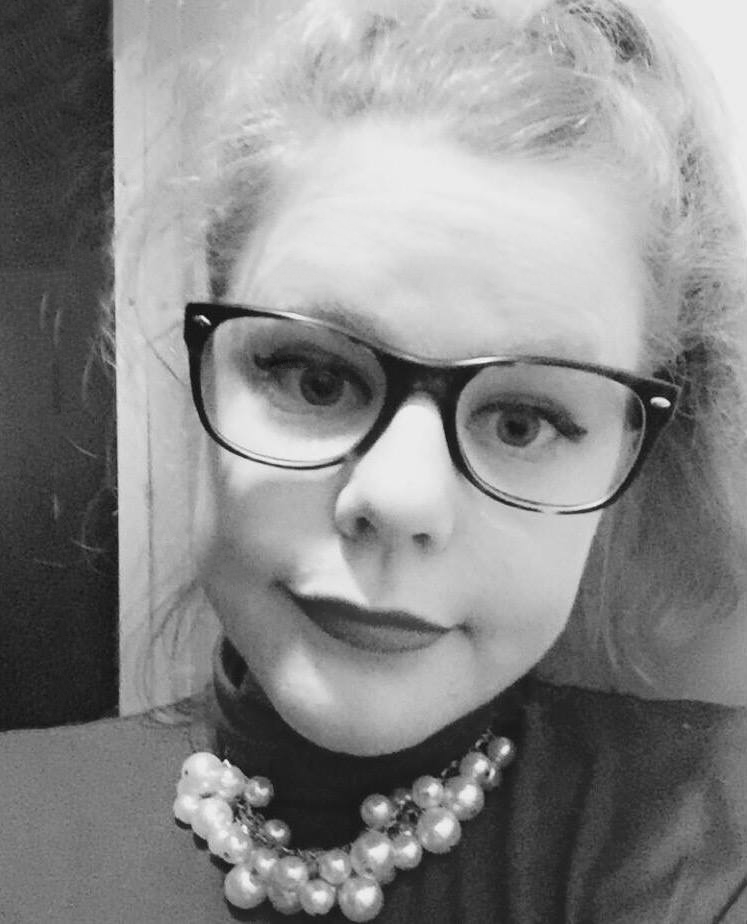 I write about stories and language at Slant Postscripts. I’ve worked extensively on nineteenth century fiction by women and decided it was high time I was more acquainted with books from this period that are closer to home. Did you know that the first book ever published on mainland Australia was by a woman? I have a project about it coming soon.
I write about stories and language at Slant Postscripts. I’ve worked extensively on nineteenth century fiction by women and decided it was high time I was more acquainted with books from this period that are closer to home. Did you know that the first book ever published on mainland Australia was by a woman? I have a project about it coming soon.
I write mostly about literary history and fiction which make up much of my research work. However my more personal writing often deals with different concepts such as illness, interpretation, trauma, injustice, and melancholia. Add me on Goodreads – I’d love to see what you’re reading!

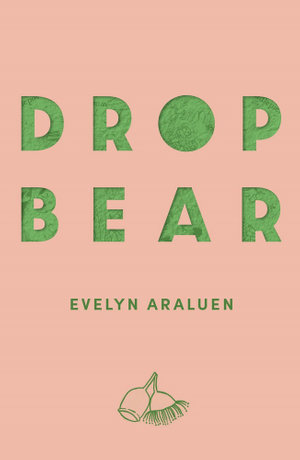
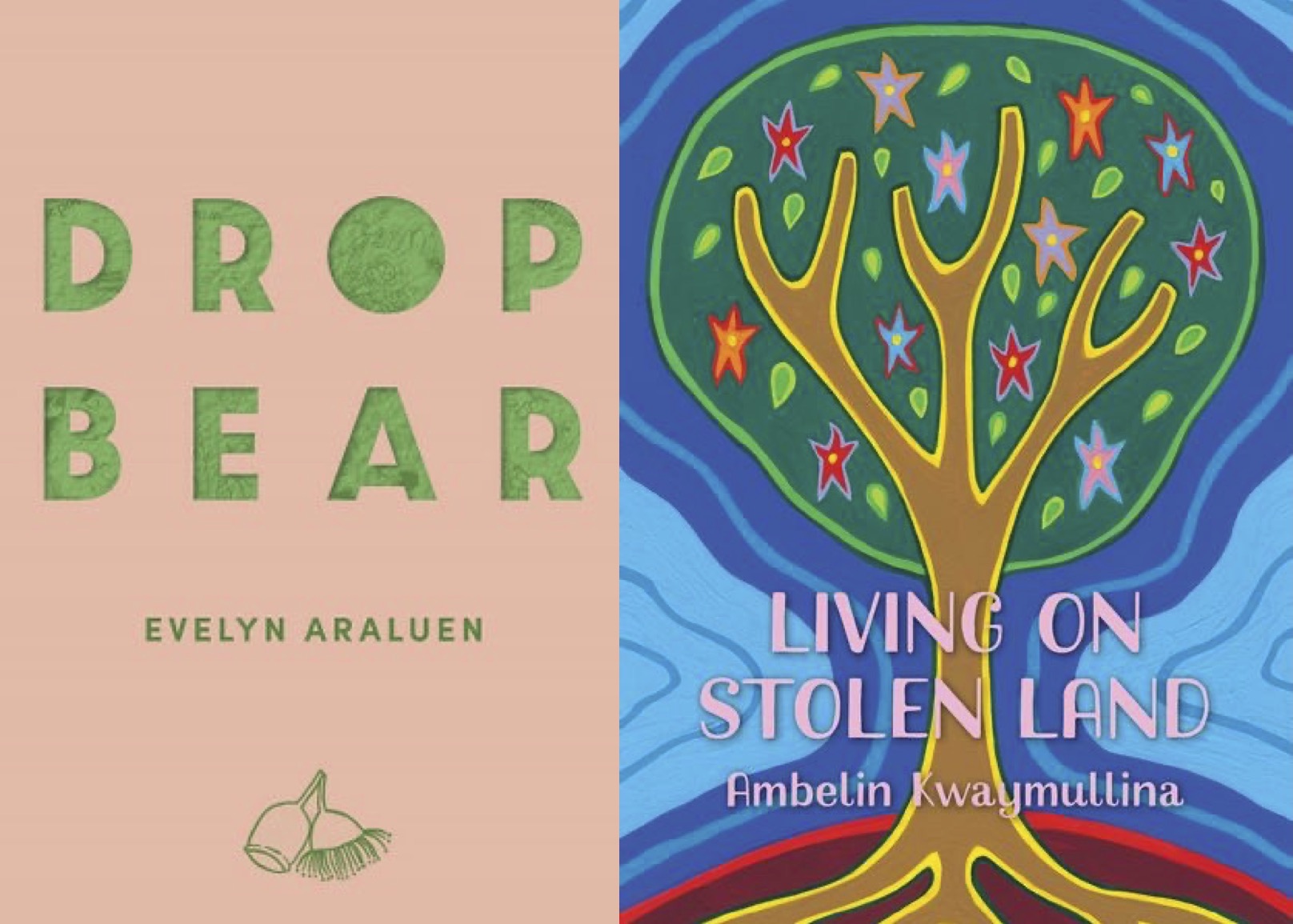 “
“



Thanks Tegan, such a terrific round up. Your passion for poetry is appreciated by the challenge, particularly your introduction of previously unlisted women writers from the past.
Thanks Theresa 😊
What a great round-up, Tegan. Thanks for your appreciative words in my direction. And especially tanks for beating the drum for Australian women poets
Thanks Jonathan! Your reviews are always interesting so it makes it very easy to have nice things to say. There’s gotta still be some other poetry tragics round about to join my orchestra surely?
Another enjoyable round-up Tegan, with a great variety of books. I think it’s time I read a non-fiction book (and, actually, I will be this month – sort of!) I am also slowly reading Jess Hill’s book.
The husband poisoner is fascinating – the fact that women at this time took things into their own hands since the law and government weren’t going to help them!
Thanks Sue 🤓 The Husband Poisoner is on order at my local library. Perhaps I will have to jump in the reservation queue for it as well as Dropbear and Growing Up Disabled?
I’m intrigued to see what ‘sort-of’ non-fiction book you’re reading!
You’ll have to wait until the end of April. It’s not THAT exciting!
Great wrap up!